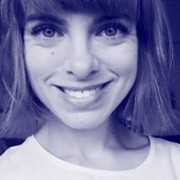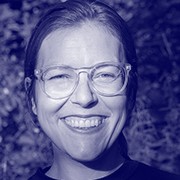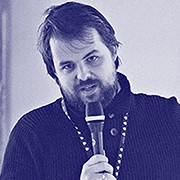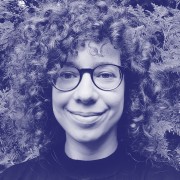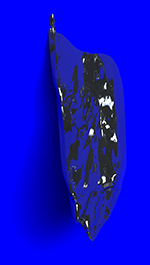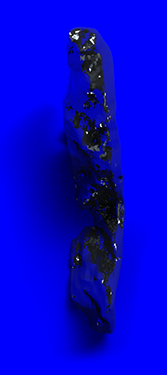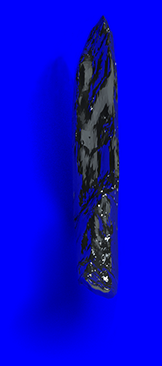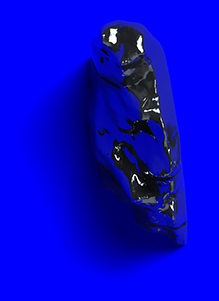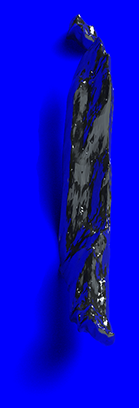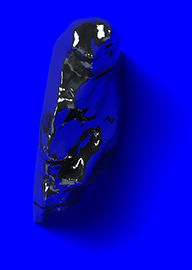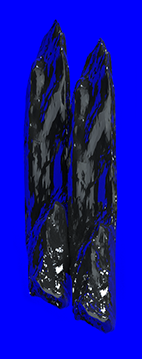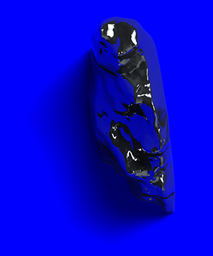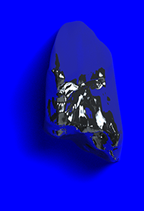About the festival
IMAGINED FUTURES
Last year’s edition of Digital Cultures Festival was focused on archives and engaging in a creative dialogue with the past. This year, we turn our attention in the opposite direction, towards the multifarious visions of the future in culture and in digital art. There is no single set scenario for what is to come, but rather a whole spectrum of likely events, utopian visions and possible changes. What tools do we want to employ to build and make sense of future utopias today? How can we put them to creative use in order to make a change?
SECTIONS
We divided our ruminations on imagined futures into a few subject areas. Crisis is one of the overarching themes for this year’s festival – we will ponder how to create not only a better, but also a more stable future in times of dynamic transformations. We will scrutinise the ongoing climate crisis and investigate what solutions to solve it are offered by science fiction film and literature. For this reason, we will watch excerpts from Brett Gaylor’s The Internet of Everything series and discuss how the data we share with global corporations could improve urban planning as well as the quality of medical services.
In the Hopes section, we will spend a lot of time talking about creative crisis management. We will consider to what extent the pandemic has re-evaluated cultural institutions’ approach to sustainable collection-building and international cooperation. We will also examine how embracing ethical aspects in Artificial Intelligence development strategies would allow us to safely make use of the opportunities it offers to art and other sectors. Finally, our Film Programme will provide inspiration for discussions on how robots can assist the elderly in sustaining social ties and improving their emotional wellbeing.
Can technology become an extension of a human being? What are the relations between the human and the human-made? In the Human non Human section, we will fathom AI workings using pierogi making process as an example. We will also learn how to expand the activity spectrum of our senses through sound and embark on a journey following 1960s Polish science fiction movie classics, in which the human world continuously experiments with the world of robots and machines.
During Digital Cultures Festival, we will be seeing the future in all its forms through the eyes of visual artists, architects, writers, filmmakers, graphic and computer game designers, audio artists, dancers, technologists and scientists. Aside from discussions, the programme will include workshops, film screenings and a dedicated Audio Programme. And like every year, we will leave plenty of room for showcasing Polish art, which continues to amaze us with its freshness and creativity.
We invite the Festival community to join in the formulation of the “Imagined Futures Manifesto” that will contain our shared demands, hopes and possible scenarios for the development of culture. Perhaps they, too, will feature in an opening text for a festival a few decades from now.
BEST OF POLAND FORUM
If you are curious what projects have emerged at the intersection of arts and technology in Poland recently, you should definitely follow sessions featuring 17 selected projects presented by their creators.
AUDIO PROGRAMME
A programme of six provocative audio artworks from Polish and international artists that act as a users guide, with tools for support in your routine setup. This collection of artworks will entail field recordings, forms of ASMR, as well as meditation and direct methods of engagement. It will challenge the notions of what it means to be given guidance by something "or someone" or a release from the monotony of the current day-to-day conventional series of events.
A programme aimed at being tailored to the user's personal needs, whether in a solitary state indoors or experiencing the sensations of the outdoors in tranquility.
FILM PROGRAMME
The motto of this year's festival serves as a pretext to rediscover the world of science fiction cinema and think about how filmmakers imagined the future in the mid-20th century. To this end, we will take a look at the few existing examples of Polish sci-fi films. The film programme accompanying Digital Cultures festival juxtaposes the already historical examples of "imagined futures" in Polish cinema with contemporary narratives about what lies ahead.
The first Polish sci-fi films are not just dystopian visions, but also short television productions, such as Andrzej Wajda's only comedy about transplants, Stanisław Kokesz's short feature about a mad scientist, and Janusz Kubik's story about aliens. The Polish Radio Experimental Studio also played a vital role in creating an image of the future by using sounds to build new worlds.
Combining these rather obscure cinematographic works with contemporary productions, in particular works created by artists from Poland and beyond – in the meantime, the debate about our future has moved from the cinema into the sphere of visual arts – helps look at these films from a broader perspective, in the context of the most burning present-day problems and how they were tackled before. It turns out that there is a certain continuity to cinematographic struggles with the future. Visions of the climate catastrophe appear both in contemporary works and dystopias from the late 20th century. Artworks that take anthropocene, the climate crisis and ways to avert it as their subject matter are in fact immersed in the philosophical tradition of the often low-budget Polish sci-fi cinema.
The programme also includes foreign productions that expand our understanding of changes in the digital world and in the relationship between humans and nature.
KNOWLEDGE SHARING
Like every year, our workshops and one-to-one meetings with experts will offer an opportunity to acquire new skills, broaden your horizons, and consult experienced digital culture professionals.
Even though we’ve had to swap Warsaw’s Iluzjon cinema for a virtual venue this year, we’ve ensured that the programme covers points that are an occasion to gather and meet new people in an informal, free atmosphere to engage in joint brainstorming. These days, communities are more crucial than ever.
FESTIVAL HUB
Digital Cultures will be open to everyone via the Internet but, as a simulacrum of reality, some of our events will be live-streamed from a studio in central Warsaw!
This year our website will become our festival hub, and we will keep you updated via daily newsletter with events you should not miss!
THE ORGANIZER
The Adam Mickiewicz Institute is a national cultural institute, whose mission is to strengthen the brand of Polish culture through active participation in international cultural exchange. The Institute carries out cultural projects in locations including Europe, Asia and the Americas. Since 2015, the Mickiewicz Institute has been developing its digital culture offering, whose goal is to support an international presence of Polish artists operating at the intersection of digital technology and art. The Institute’s flagship project in this area is the Digital Cultures Festival, an annual event held since 2017. Throughout the year, the Institute supports the participation of Polish artists in exhibitions, presentations and residencies abroad.
Programme team
